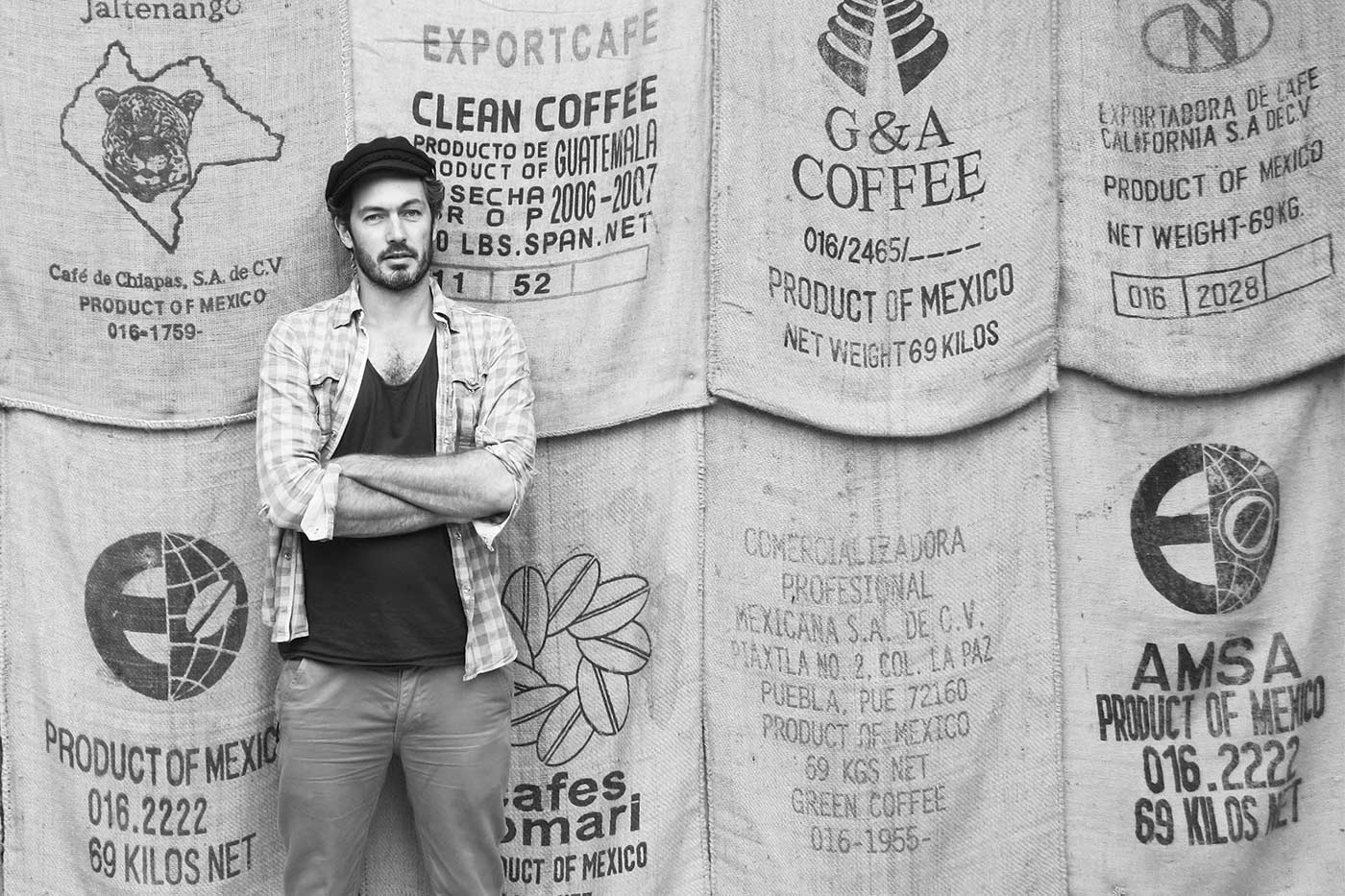Pigs on bikes, slaughtered goats and cabs with no headlights – it’s all in a day’s work for the intrepid explorers sourcing beans in Africa
Bean importer Phil Schluter has travelled many times to East Africa, the land where he spent much of his childhood. There’s a history of adventuring in his family – indeed, his coffee growing grandmother would recount the time she was lowered down the Rift Valley in a basket and also the occasion she saw a hippo bite a boat in half on Lake Baringo. So it’s no surprise to learn that Phil’s at home in the depths of the African countryside. ‘It’s a privilege to see places in the world that no one ever sees,’ he says, before recalling one memorable trip to source organic beans in Ethiopia.
After a hassle with the Hilton hotel in the capital Addis Ababa (the hotel had given his rooms away because, despite being transported by its own shuttle bus, Phil’s group had apparently got there too late), they set off for the small town of Nazeret. ‘Only after I’d paid for our return room and begged them to keep it for us,’ he says. At Nazeret he found himself waking at 5am in a run-down hotel to find two monkeys going through his luggage – ‘a colleague had left a door open for air,’ he says. ‘Big mistake.’
The day’s trip began with a drive to a point 3,000m up, overlooking the Rift Valley. ‘We were on an escarpment, and could see the rolling green hills for miles and miles. It was absolutely beautiful.’ Making their way through a v-shaped crack between rocks, they followed what was a very bad road, to the bottom of the valley, then drove for two hours across and into virgin rain forest. ‘We met with the locals who shook our hands then went and slaughtered a goat which we ate with them.’ After handing out footballs to the children, Phil shared a bottle of coke with the local imam, before they continued on their way.
On the return journey, the car broke down and they found themselves at 9pm on a rough road miles from anywhere. A passing bus took them back to Nazaret, but they needed to get to the capital, Addis Ababa. ‘Our hosts said not to get a taxi’, but after a futile wait for another bus they hailed a cab and set off – in a vehicle which had no headlights and a door that didn’t close. ‘It only went at 40mph and it took 10 seconds from turning the wheel for the car to change direction.’ It took them more than four hours to reach Addis at 2am. And guess what? ‘They’d only gone and given our rooms away again,’ sighs Phil.
Bertie Sewell was working for an advertising agency in the centre of London, before he decided, rather bravely, to pack it in and head off on his own to Southern Tanzania, for a job overseeing a coffee warehouse.
On arrival he found everything broken. ‘It was pandemonium at first,’ he admits, and then there was the hotel dinner experience. ‘I went to this tiny little hotel. The menu had at least 12-15 items on it, but every time I asked for something, they hadn’t got it.’ At a loss, and being the only person in the dining room, he finally asked what they did have. ‘A chicken’ was the reply. A chicken was quite literally what they had – and only after they’d bought one off the neighbour and slaughtered it.
Bertie had to learn fast about life in east Africa, and get used to the unexpected. On one occasion he was based in a small town called Mbinga where, as an operations manager, he worked with around 40 remote washing stations. ‘You’d get to them by really winding roads, or no roads at all. They’d start harvesting late at night and it would take a long time to get back to the station to process it. Often if something broke at a factory, I’d get a panicky call and then I’d be bombing off in a bus in a middle of the night to try and sort broken machines.’
On his own in a strange country, miles away from home, he admits, ‘there were times when I’d feel a bit down trodden. But every day I’d wake up and see something spectacular – like the view. There’s no power for miles around, so you wake up with the sun at dawn, go get your cup of chai and pancakes and you’re up and running.’
‘I’d then meet the team before we set off for the bank in a Land Rover with a load of coffee sacks – because everything’s done in cash.’ Sacks? ‘You need them because you have to withdraw lots of cash – one dollar is around 2,000 shillings – so you’d fill sacks and sacks of money. The landrover would be full, and you’d come back with an armed guard by your side. I felt like a gangster!’
But he still felt safe. ‘Crime is more opportunistic there, not malicious,’ he says. ‘People are so happy with so little, but their prerogatives are so different. Community stands for everything and hospitality is important. ‘So, you’d be invited by your farmers to sit and eat with them – I was even offered a daughter in marriage once!’
Bertie is back in the UK and now working for Schluter bean importers says, ‘What I did was amazing, but not all that easy. It’s so totally different. But I’ve had time to reflect and all the stuff that used to annoy me – the informality, nothing working, the laid back thing, is what I miss – that approach to life. It’s proper living, and it’s so life affirming. And you always see the funniest things,’ he adds, laughing, ‘like a guy going past on a motorbike the wheel hanging off, with six pigs on the back of it!’


